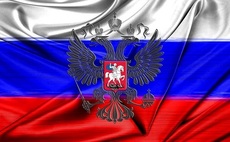'Blanket surveillance is highly unlikely to prevent a terrorist attack and is a dangerous misuse of resources'
Two American mathematicians have spoken of their concern that the mass data collection undertaken by the NSA with the aim of 'preventing terrorism' is both ineffective in achieving the stated goal ...
To continue reading this article...
Join Computing
- Unlimited access to real-time news, analysis and opinion from the technology industry
- Receive important and breaking news in our daily newsletter
- Be the first to hear about our events and awards programmes
- Join live member only interviews with IT leaders at the ‘IT Lounge’; your chance to ask your burning tech questions and have them answered
- Access to the Computing Delta hub providing market intelligence and research
- Receive our members-only newsletter with exclusive opinion pieces from senior IT Leaders





















